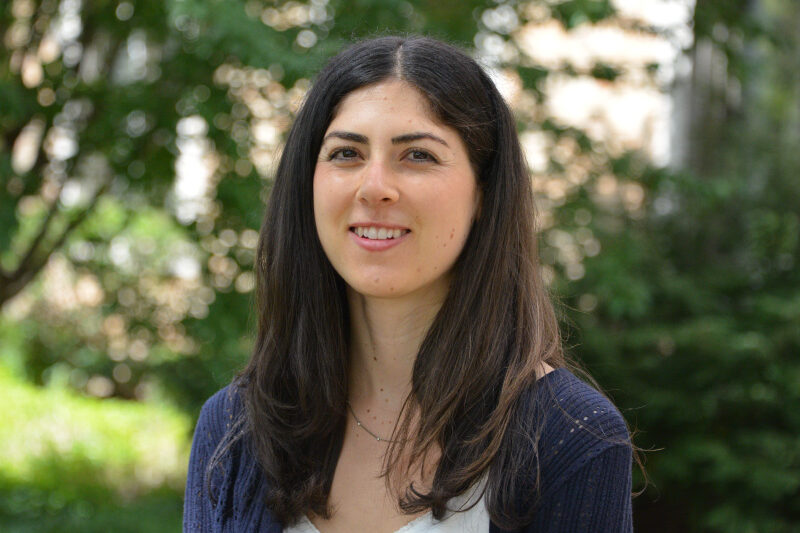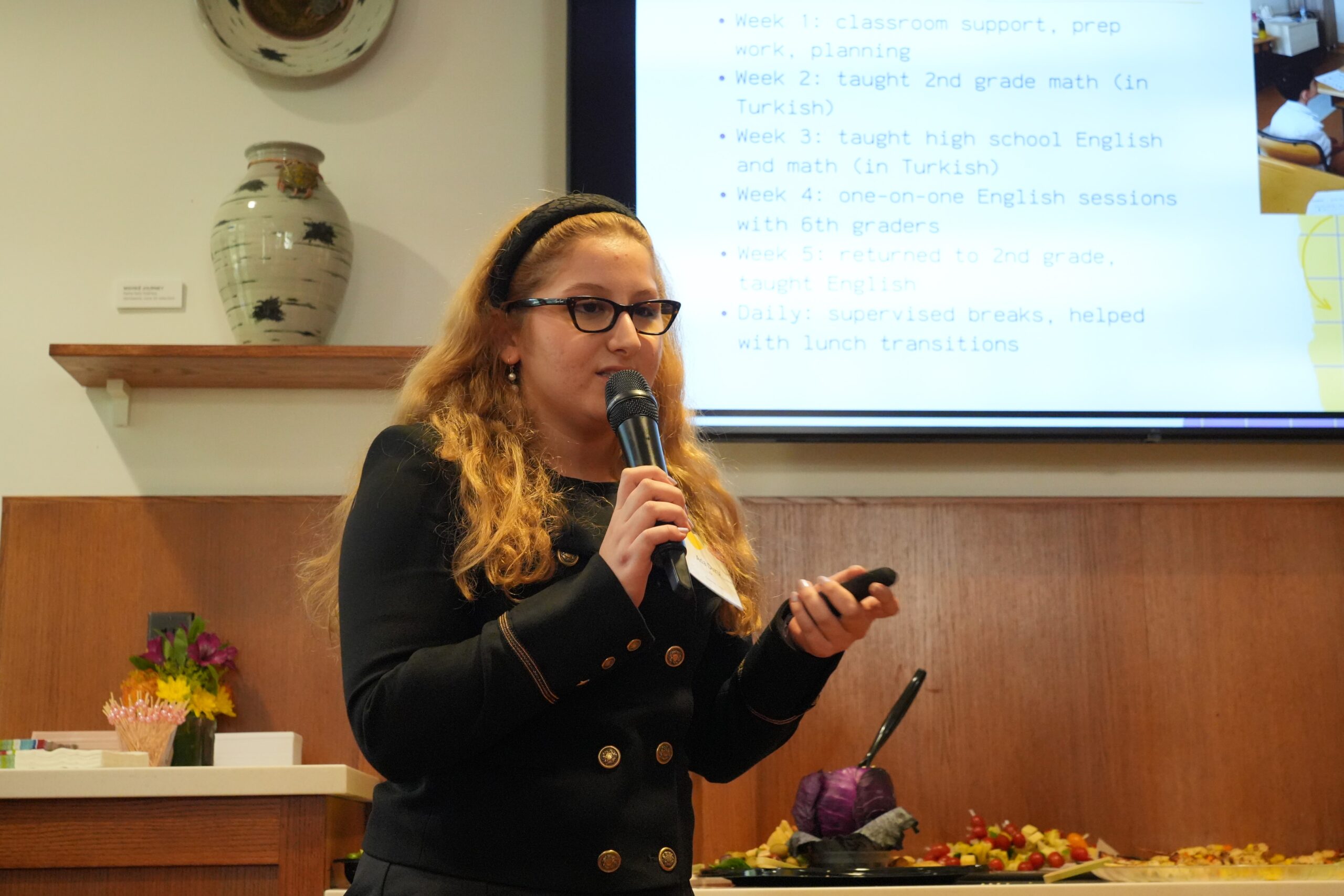Institute for Social Concerns starts new research lab to study mass incarceration
November 21, 2023
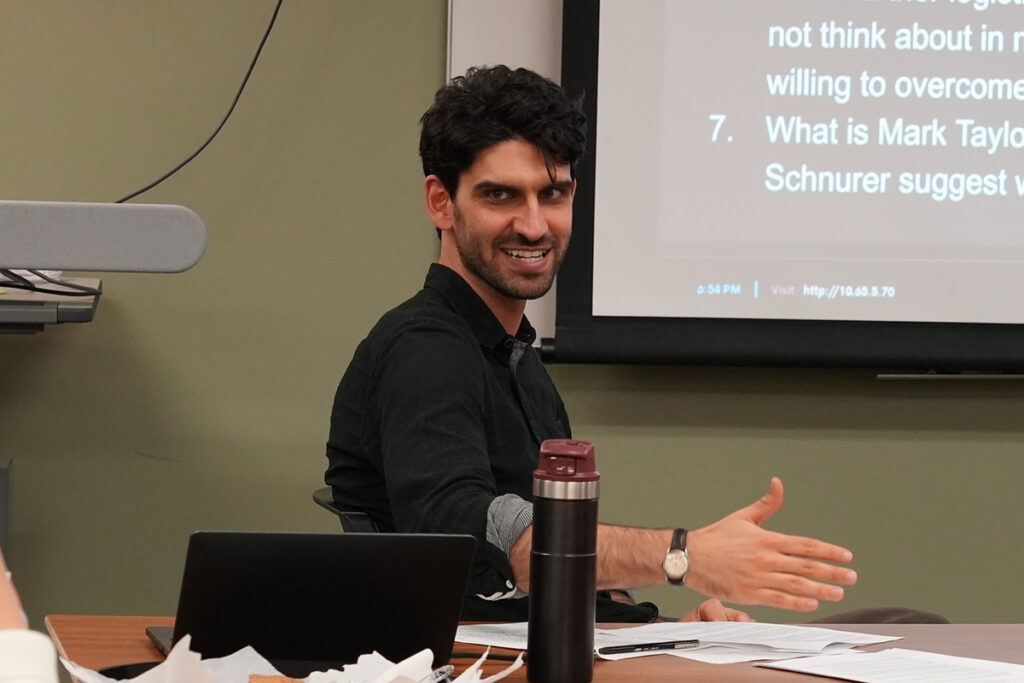
The Institute for Social Concerns launched a Mass Incarceration Research Lab this fall that invites students to dig into the many dimensions of the crisis of mass incarceration.
Students in the lab collaborate with faculty, activists, practitioners, and those affected by incarceration to design research projects that will contribute to the overall body of scholarship on incarceration. The lab is open to students from all academic disciplines, and they are encouraged to hone their research projects around their existing academic and intellectual interests.
“The idea is to bring together faculty, graduate students, and undergraduates to pursue different projects with a focus on moral imagination in the space of mass incarceration,” said Samuel Sokolsky-Tifft, a postdoctoral research fellow at the Institute for Social Concerns who started and is leading the new lab. “The prison system, in theory, is intended to have this moral dimension beyond the eye-for-an-eye model of punishment. It’s meant, for example, to have a rehabilitative aspect. Now that we’re living in this age of mass incarceration, how and where morality and moral imagination exist in the space of mass incarceration is one of the key social questions of our time.”
The Mass Incarceration Research Lab is part of the Institute for Social Concerns’ overall commitment to understand mass incarceration more fully and support the incarcerated and formerly incarcerated through initiatives like Notre Dame Programs for Education in Prison (NDPEP).
To connect all this work, the lab frequently hosts guest speakers during class sessions. For example, Lisa Hochstetler, who graduated from Marian University through the Women’s College Partnership administered by NDPEP, discussed her experience with students during a Nov. 15 class on prison education.
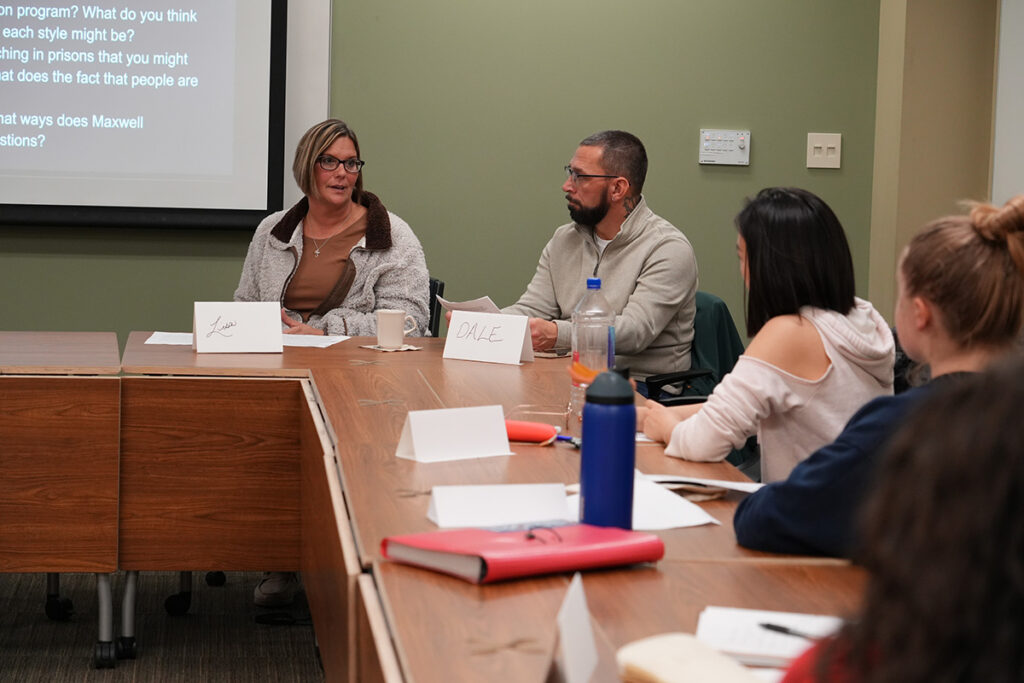
Students in the lab this semester are focusing their projects on topics that include education in prisons, support programs for families of incarcerated people, and the effects on children whose parents have been incarcerated.
“The students can come from a variety of majors and varied backgrounds in relation to mass incarceration. Some have studied it deeply, some more minimally, others have close relatives who have been incarcerated,” Sokolsky-Tifft said. “One thing that’s been special is to have this fusion of different perspectives and skill sets all come together.”
The 12 students who enrolled in the Mass Incarceration Research Lab this fall were drawn to the subject matter for a mix of personal and professional reasons.
Doris Cruz, a sophomore majoring in history and Latino studies, grew up in the South Minneapolis neighborhood where George Floyd was murdered by police in 2020. Her career goal is to be an attorney.
“I took the lab to understand more about what is going on in the prison system,” Cruz said, “and the racial disparity among incarcerated people.”
Sophomore sociology major Alexis Hill also wants to be an attorney and has seen the impact of mass incarceration on her neighborhood in Orlando. “I want to be part of the solution,” she said.
Emma Schoenauer, a junior majoring in economics with a minor in public policy, became interested in policy after studying incarceration and mental health in one of her first-year courses. She said the Mass Incarceration Research Lab underscores the importance of political engagement.
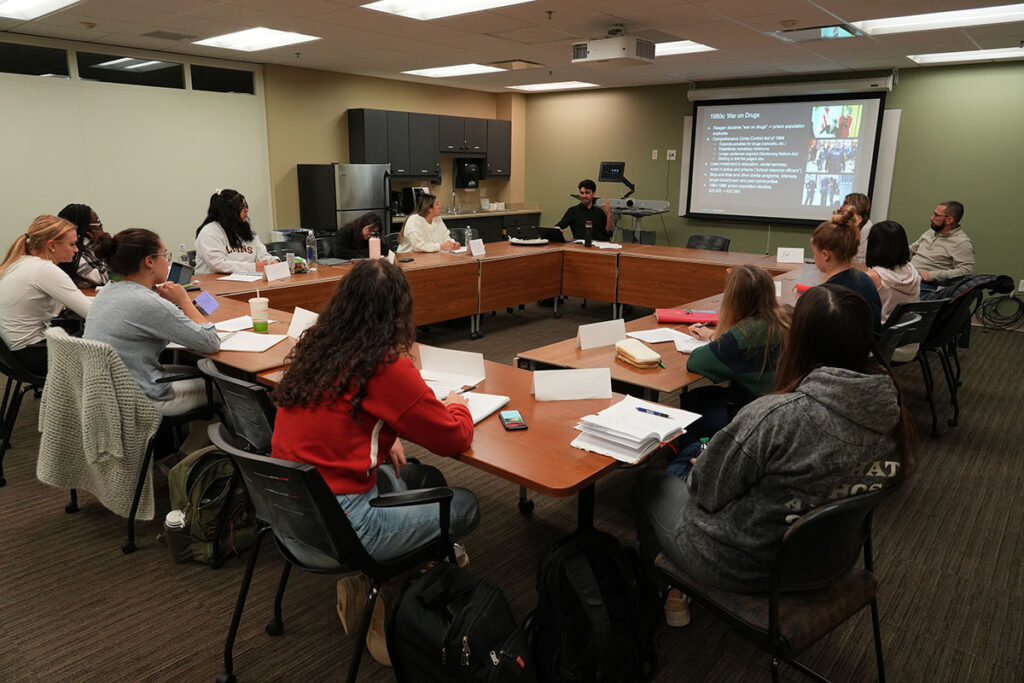
Lizbeth Cordova Lopez, a sophomore majoring in psychology and minoring in poverty studies, engaged with issues of incarceration last summer through NDBridge, a program of the Institute for Social Concerns that enables rising sophomores to live alongside marginalized communities and research questions of justice. She worked for Accompanying Returning Citizens with Hope (ARCH) in Columbus, Ohio, where she was struck by conversations with women who described how incarceration had affected their families.
Cordova Lopez has personal ties to the topic as well. Her father was incarcerated for 13 years. “I want to better understand him and other people who have been incarcerated,” she said.
Sokolsky-Tifft, for his part, is a historian with extensive experience teaching in prisons.
As an undergrad at Harvard, he taught in a program that helped mentor and tutor incarcerated people toward the GED test. When he was a graduate student at the University of Cambridge in the United Kingdom, he taught romantic poetry at HM Prison Grendon in a class where half of the students were at HMP Grendon and the other half were Cambridge students.
“It was an amazing teaching experience,” he said. “I think anyone who has done that work will tell you it’s one of the most pleasing and most rewarding forms of teaching you can do.”
Sokolsky-Tifft is writing a book, Reconceiving Guilt: Guilt, Collective Responsibility, and Political Agency in the Age of Mass Incarceration, that explores the intellectual history of the concept of guilt from the 1920s through the prison boom of the 1980s and 1990s to today.
A perspective on the past is invaluable to studies of mass incarceration, he said. The current social predicament is the direct result of conscious policy choices that were often made to target the groups that are most affected by mass incarceration today.
“One thing that is really empowering about history is to recognize that mass incarceration isn’t an accident,” he said, noting for instance that the prison system was exploited by design to re-institute a type of involuntary servitude in the years after the 13th Amendment abolished slavery.
“As that story starts to get out in the open and you have morally minded people who are more and more aware of this history, then people can work to change it.”
Learn more about the Mass Incarceration Research Lab.
Related Stories
-
ReSearching for the Common Good: Solbee Kang
-
Bridging worlds through art—Kyla Walker joins institute as international poetry justice fellow
-
The power of encounter—RISE Hometown prepares incoming students for learning in service of justice at Notre Dame
-
The beauty of everyday democracy—Institute convenes scholars, practitioners, Luke Bretherton for democracy conference
-
Catalyzing collaborations with South Bend citizens for the common good—Institute launches South Bend Citizens Collaboratory


